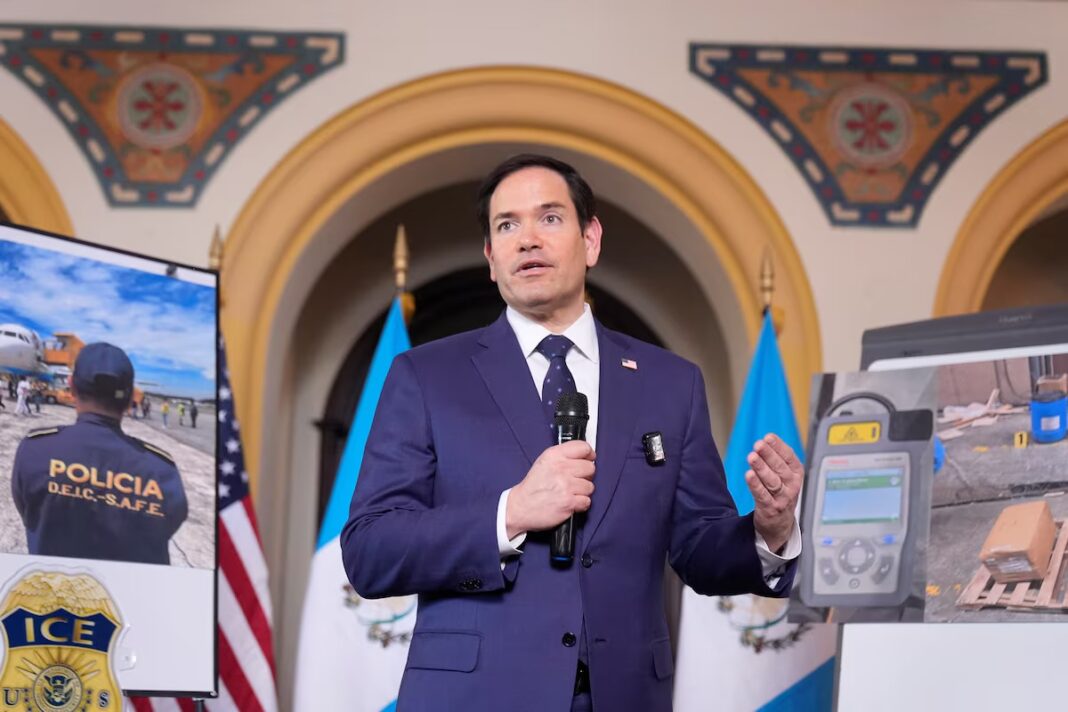U.S. and South Africa in Diplomatic Standoff
A major diplomatic rift has emerged between the United States and South Africa after President Donald Trump threatened to cut funding to the African nation. Following Trump’s remarks, U.S. Secretary of State Marco Rubio announced he would not attend the upcoming G20 meeting in Johannesburg, scheduled for February 20-21.
South Africa currently holds the G20 presidency, a position it will maintain from December 2024 to November 2025. The absence of the U.S. Secretary of State at the meeting raises concerns about growing tensions between Washington and Pretoria.
Trump’s Accusations Against South Africa
Trump has accused South Africa’s government of confiscating land and claimed that certain groups are being mistreated. He has not provided specific evidence for these claims. As a result, he threatened to halt financial aid to South Africa until the matter is investigated.
South African President Cyril Ramaphosa strongly denied these allegations. He defended his country’s land policies, explaining that they aim to correct historical injustices from the apartheid and colonial eras.
Land Ownership Controversy
The land issue in South Africa is highly sensitive. During the colonial and apartheid periods, Black South Africans were forcibly removed from their land and denied property rights. Even today, white landowners control nearly 75% of South Africa’s farmland, despite making up only 8% of the population. In contrast, Black South Africans, who make up 80% of the population, own only 4% of the land.
To address this land imbalance, Ramaphosa signed a new law last month allowing the government to expropriate land in the public interest. He insists that no land has been arbitrarily confiscated and that the policy is designed to ensure fair access to land for all citizens.
Rubio Criticizes South Africa’s Policies
Marco Rubio, a strong Trump ally, echoed Trump’s criticisms in a post on X (formerly Twitter). He accused South Africa of promoting policies based on diversity, equality, and sustainability, claiming they violate property rights.
South Africa’s foreign ministry quickly responded, stating that the land expropriation policy is similar to Eminent Domain laws in the United States. Eminent Domain allows the U.S. government to take private land for public use while offering fair compensation to the owners.
Elon Musk Joins the Debate
South African-born billionaire Elon Musk also commented on the issue. Musk, who has a close relationship with Trump, claimed that South Africa’s land policies were openly racist. He did not provide evidence to support this statement. Musk’s remarks have fueled further division in the debate over land ownership and racial inequality in South Africa.
Impact on U.S.-South Africa Relations
The U.S. and South Africa have long-standing ties, particularly in trade and security cooperation. However, Trump’s threat to cut funding and Rubio’s G20 absence signal a strain in relations between the two nations.
Despite this, South Africa remains a key player on the global stage, especially as G20 president. Many analysts believe the country will continue to engage with other global powers, even as tensions with Washington escalate.
Diversity and Inclusion Debate
The Trump administration has also taken a strong stance against Diversity, Equity, and Inclusion (DEI) programs. Trump and his allies argue that DEI policies promote division and undermine merit-based systems.
However, civil rights groups defend DEI initiatives, saying they are necessary to address historical inequalities. The land reform efforts in South Africa align with similar DEI principles, making it a controversial issue for Trump’s administration.
What’s Next?
The G20 meeting will proceed without the United States’ top diplomat Rubio, could weaken U.S. influence in key discussions. Meanwhile, South Africa will continue defending its land policies, insisting they are meant to correct past injustices rather than target any specific group.
With Trump signaling a tougher stance on international policies, the diplomatic landscape between the U.S. and South Africa could face further challenges in the coming months. As global leaders gather in Johannesburg, all eyes will be on how South Africa navigates the growing tensions with Washington.

